Dancing on Sunshine: An Interview with Parris Afton Bonds
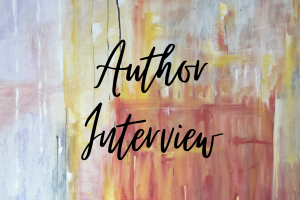 Running an author interview series allows me to “meet” authors I might not have encountered otherwise. New York Times bestselling author Parris Afton Bonds falls into that group. We crossed paths thanks to our connection to Diane Windsor of Motina Books, and I’m so glad we did. Parris is a veteran of the publishing industry with a wealth of information to share and cofounder of the famed Romance Writers of America (RWA). On her website, she greets her readers: “We have some things in common ~ that we believe good overcomes evil; that love triumphs over everything, even death; that we love a tension-packed story; and that we feel the best books sweeten our lives.” And don’t the best books do just that? Honestly, even the emails that Parris sent in conducting this interview, full of optimism and cheer, sweetened my life! Read on and you’ll understand how full Parris’ life is, which is why I’m extremely thankful she took some time to speak with me and answer these questions so thoughtfully.
Running an author interview series allows me to “meet” authors I might not have encountered otherwise. New York Times bestselling author Parris Afton Bonds falls into that group. We crossed paths thanks to our connection to Diane Windsor of Motina Books, and I’m so glad we did. Parris is a veteran of the publishing industry with a wealth of information to share and cofounder of the famed Romance Writers of America (RWA). On her website, she greets her readers: “We have some things in common ~ that we believe good overcomes evil; that love triumphs over everything, even death; that we love a tension-packed story; and that we feel the best books sweeten our lives.” And don’t the best books do just that? Honestly, even the emails that Parris sent in conducting this interview, full of optimism and cheer, sweetened my life! Read on and you’ll understand how full Parris’ life is, which is why I’m extremely thankful she took some time to speak with me and answer these questions so thoughtfully.
Christina: Congratulations on the release of your latest book, Reluctant Rebel, a “historical novel based on the true events of the Bath riots.” What draws you to writing historical fiction? And how do you choose what true episodes in history to include? Do you ever feel constrained by history, and if so, what’s your solution?
Parris: First, Christina, thank you for this opportunity to connect with other readers and writers.
While I write mysteries, sci-fi-, westerns, etc., I prefer historical romances because there did not exist those technological distractions, like cell phones, internet, and, yes, even television. Life was more intense, and we often had to depend on one another for mere survival. Thus, we focused on one another more. I think technology, rather than simplify our lives, has overwhelmed us.
The eras I choose to write about were more courtly—more romantic, indeed. Not the blatant sexuality that often occurs in our present era, a seduction that precludes getting to know one another, as if the immediate sexual satisfaction gained by detouring courtship is more prized than the person’s essence. Besides, historical romance links the present to the past in ways that facts and dates can muddle. It summons characters out of the past and sits them next to you in the car or at the dinner table.
I am compelled to write about certain eras in history that jerk on my sleeve, whisper in my ear, awake me in the middle of the night. These eras or events are those that seem to me to obstruct laws, arbitrary ones that lack integrity. I want to address these egregious acts in a way that by my story’s end inspire, encourage, and elevate.
As to “do I ever feel constrained by history?” Yes. I address this constraint, if I must deviate, by acknowledging this in my Author’s Notes. Not often do I have to deviate. I often encounter where a certain historical event will have various recordings—differentiating dates or characters or places—and I will select the one most conducive for my novel’s flow.
Christina: In your opinion, what can romance do that other genres cannot? Is there a genre you would never write?
Parris: Novels in other genres that do not contain an element of romance are few. The interplay between lovers is responsible for the continual existence of mankind since Adam and Eve.
Still, given this, I could never write in the horror genre. And I understand its viability. We do need that release of accumulated daily stress. I would imagine reading horror accomplishes this. I so admire authors like Stephen King and have read several of his non-horror novels.
Christina: You’re a co-founder of Romance Writers of America, an organization whose mission is to “advance the professional and common business interests of career-focused romance writers through networking and advocacy and by increasing public awareness of the romance genre.” Can you give us a little background on how the idea for RWA came about? Did you have any clue that the organization would be so successful forty years later? What are some challenges that RWA and romance writers in general might need to think about?
Parris: I was a speaker at the University of Houston’s writer conference in the summer of 1979. In my hotel room that night were Rita Clay Estrada, Sondra Stanford, Peggy Cleaves, and others, including Sandra Brown, who had not yet sold a novel. Rita suggested forming a romance writers’ organization along the lines of Western Writers of America. The idea took off, and the renowned Dell editor Kate Duffy assisted us in getting the word out to the New York publishing industry. Rita was the first President and I the first Vice President. At our first conference in Houston, we were hopeful to have 60 to 75 attendees. Over 800 writers, editors, and agents attended, with reporters from the BBC, San Francisco Chronicle, the Washington Post, and many more. Talk about being overwhelmed! RWA went on to become the largest writers’ organization in the world with more than 12,000 members in chapters across the continents. Sadly, over the past year the organization has been co-opted and membership has dropped drastically.
Christina: The Native American culture has largely influenced your work. What do you hope readers gain from learning about the Native American culture? About historical fiction in general?
Parris: I am hoping readers of my novels Dust Devil or When the Heart Is Right will be reminded of our spiritual oneness with Nature. How vital it is not only to our survival but to our happiness. I am appalled by what various nations and religions have done to undermine the indigenous cultures. Reluctant Rebel takes place in 1917 El Paso with an incident of xenophobia so pronounced it borders on genocidal, and we see history repeat itself in 1938 Nazi Germany. This is why historical novels are important—they remind us, lest we forget.
Christina: Parenting and writing books are not easy endeavors, but you’ve been successful at both (five boys, more than fifty books)! What’s the greatest lesson you’ve learned from your sons? Do you have any tips for those parents who are trying to find the time to dedicate to their craft? And how do writers, especially those with parental responsibilities, get over the inevitable self-doubt that can come from weigh on them?
Parris: Wow, Christina, what insightful questions. What is the greatest lesson I have learned from my sons? I will fall back on my genre of preference—historical romances. Love. They have taught me I am lovable even when I was yelling to put the moldy pizza pie, neglected beneath the bed for three weeks, in the trash. Decades ago, I wrote an article for Writer’s Digest, entitled “Minute by Minute.” It detailed how I managed to write while raising five sons. Writing while sitting on the cold bench during football practice, on the hard bench at Juvenile Court, on the metal bench at the emergency room, on the wooden bench at the principal’s office. They all survived my half-ass parenting and went on to become “Doctors, Lawyers, and Indian Chiefs” or what I am happy and relieved to identify as relatively well-adjusted human beings. As for self-doubts, those should always be there. If not, one’s literary efforts will never resonate with the rest of humanity.
Christina: In an Instagram post from last September you talked about your move to Mexico. “The pace of life is slower, the demands of life much less, the opportunity for adventure grander—changes I wanted.” How are you settling in? Has anything surprised you since moving? Has your writing process been affected?
Parris: Honestly, settling in has taken some time, some adjusting. I don’t hop in the car and make one trip only to Kroger. I walk almost everywhere. I do take the bus for longer distances, which is cheap and convenient (and occasionally an Uber). I purchase fresh eggs from one tienda (small neighborhood stores), steak from a carniceria, and detergent yet from another tienda. This means more time stolen from my writing, but more time added to my connection with people on a most basic level—which means, I think (and hope) the wherewithal to create a novel with more depth. My blood pressure has lowered. My health has improved. And I am much more content, even happier, most days. I miss my family and friends, yes. But I am required to renew my visa every six months back in the States, so when I return, we do NOT take each other for granted. Plus, they do visit me here, as well.
Christina: What does literary success mean to you?
Parris: I count myself fortunate to have found my life’s passion, my life’s path, and followed it early on, beginning at five when I typed (on a Remington manual typewriter) my first novel of three pages—The Blackhawk Women Ride Again. There have been times when, as a single mother, I have had to do double duty. I once held down FOUR jobs FIVE days a weeks for nearly half a year. Still, I made time to write. Writing is my cake. Literary success is my icing. A sweet touch, but I am content, even dancing on sunshine occasionally, just writing every day. Life hasn’t been all chocolate candy and roses, but it has turned out to be so sweet nonetheless.
Parris can be found in multiple places!
Website: https://parrisaftonbonds.com/
Instagram: @parrisaftonbonds
Twitter: @parrisabonds
Facebook: @ParrisAftonBondsParadise
Thanks to Parris for agreeing to this interview! If you know of an author who’d like to be featured in an interview (or you are an author who would like to be featured), feel free to leave a comment or email me via my contact page.

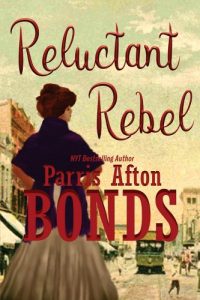
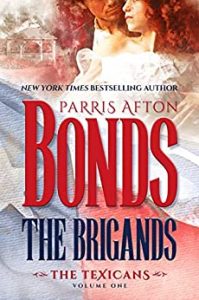
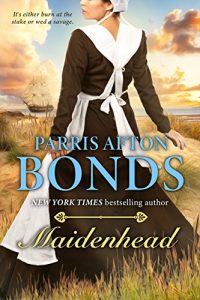
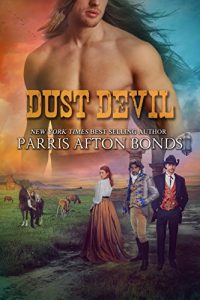
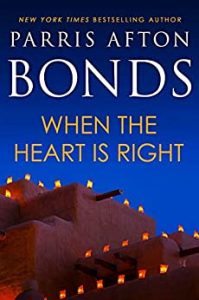
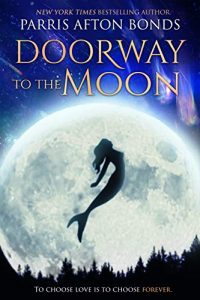
This is a solid interview with a passionate and compassionate author. I’m grateful for it.
Thanks for reading!